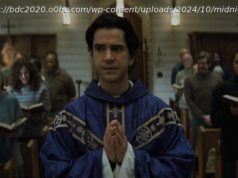Western powers may be at odds with the people doing the fighting and dying.
A WaPo report by Michael Birnbaum and Missy Ryan reinforces my longrunning sense that the United States and its allies will make settling the war harder: How to end the fighting and support Ukraine will be among the sharpest discussions at a gathering of NATO foreign ministers in Brussels that starts Wednesday. The United States and its allies say that Ukraine must be the ultimate decider as it defends itself, and that it shouldn’t be pushed to make compromises or encouraged to fight longer than it is willing. But Kyiv’s decisions — and any concessions President Volodymyr Zelensky might embrace — will help determine whether the Kremlin is chastened or emboldened, and nations that have territorial ambitions over their neighbors, such as China, will be watching the outcome. Some NATO allies are especially cautious about ceding Ukrainian territory to Russia and giving Russian President Vladimir Putin any semblance of victory, according to alliance policymakers and analysts. While Biden administration officials remain skeptical that the Ukrainian government’s negotiations with Russia will lead to a swift deal, officials say they are considering how a settlement — or any end to the fighting, however that might occur — will impact the security of NATO nations. Which, of course, is what national governments are supposed to do. But, while NATO and others have been generous with financial, material, and intelligence support to Ukraine, they have left the fighting and dying to the Ukrainians. “We believe that our job is to support the Ukrainians,” national security adviser Jake Sullivan said this week. “They will set the military objectives. They will set the objectives at the bargaining table. And I am quite certain they are going to set those objectives at success, and we are going to give them every tool we can to help them achieve that success. But we are not going to define the outcome of this for the Ukrainians.” That’s contradictory: the Ukrainians are free to determine the end state, so long as the end state is the one we believe correct. Some European countries, especially formerly communist ones with bitter memories of Russian invasion or occupation, are especially nervous about how the conflict will evolve, seeing themselves as next on the Kremlin’s target list. If Putin feels he has profited from the invasion, by winning territory, political concessions or other benefits, he may eventually be inspired to try the same thing against other neighbors, policymakers say. The Ukrainians, as a result, are involved in a broader fight on behalf of Europe, NATO leaders say. “I hope they will be hard as steel. I support maximum military support and maximum sanctions,” Latvian Defense Minister Artis Pabriks said in an interview. “Russia must lose and criminals should stand in court.” Again, a perfectly reasonable position. Anything that leaves Putin able to claim a win will only embolden him and threaten other countries in his “near abroad.” But the resolve to fight to the last Ukrainian is not as valorous as it seems. Even a Ukrainian vow not to join NATO — a concession that Zelensky has floated publicly — could be a concern to some neighbors. That leads to an awkward reality: For some in NATO, it’s better for the Ukrainians to keep fighting, and dying, than to achieve a peace that comes too early or at too high a cost to Kyiv and the rest of Europe. “Many of us have, and it’s absolutely human, a willingness to see that the war ends as soon as possible, that people are not suffering, not dying, and that there are no bombings,” said a senior European diplomat who, like others, spoke on the condition of anonymity to talk frankly about sensitive security issues.






